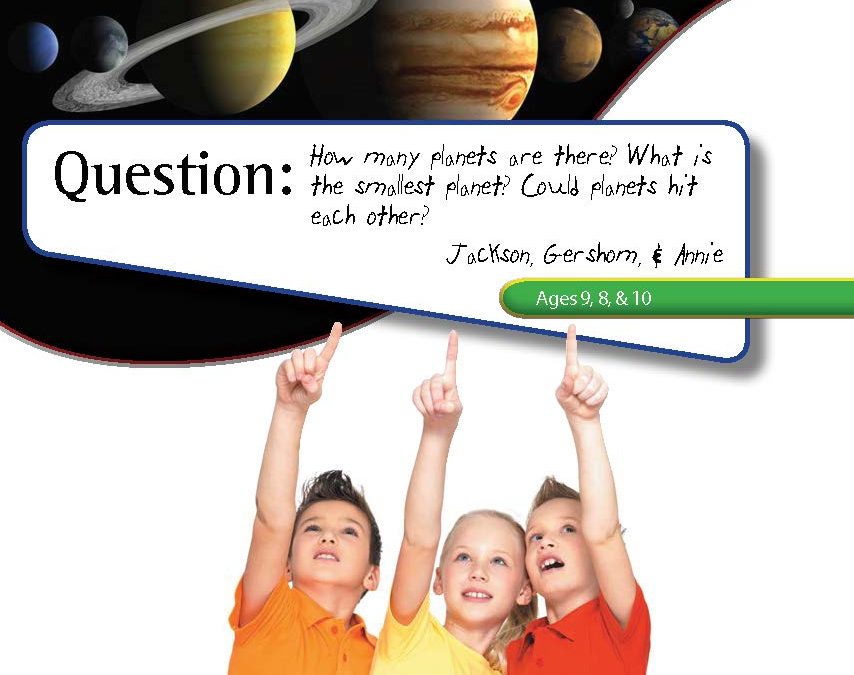[column width=”1/1″ last=”true” title=”” title_type=”single” animation=”none” implicit=”true”]
Answer:
Can you bind the cluster of the Pleiades, or loose the belt of Orion? (JOB 38:31)
The definition of a planet was recently changed. Because of this change, the previous count of nine planets was changed to eight. Pluto is no longer considered a planet. According to the new definition, a planet must be massive enough to be nearly round, in orbit around the sun (usually in the same basic plane), and have control of its surroundings (e.g., moons, rings, and so on revolve around it.) By this definition, there are only eight planets (Mercury, Venus, Earth, Mars, Jupiter, Saturn, Uranus, and Neptune). Although Pluto used to be considered the smallest planet, the smallest one is now Mercury. Mercury is also the closest planet to the sun.
Planets have a fixed orbit at a certain distance around the sun, so none of them will ever collide. They are very far away from each other. There are things that collide with planets and moons, but these are smaller chunks of rock, like meteoroids. The orbits of some other items like comets could hit planets. They have an orbit that comes close to the sun and then travels far away from it. These could hit a planet, but it would still be a very rare event since the solar system is big and even planets are very small in this big system, but it does happen from time to time. For example, in 1994, Jupiter was hit by Comet Shoemaker-Levy 9.
Source: https://answersingenesis.org/kids/astronomy/could-planets-hit/
[/column]


